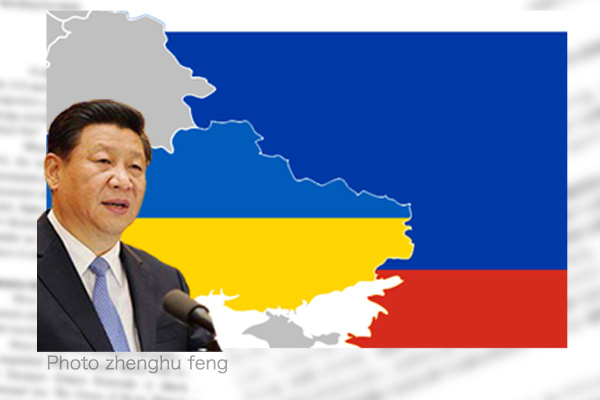Chinese President Xi Jinping visited Russia this week with a plan to end Russia’s war of aggression against Ukraine. Earlier this month, China successfully mediated an agreement between Saudi Arabia and Iran for restoring their diplomatic relations to end years of hostility in the Gulf region. Gaining momentum from the reconciliation, China is acting as a goodwill mediator in the war in Europe.
Chinese Foreign Minister Qin Gang positions China as a peacemaker and depicts the United States as a war provocateur that has repeatedly destroyed efforts to encourage talks. He attempts to reverse an evil image of the China-Russia axis and turn strategic competition with the U.S. to China’s advantage.
Impressing China as peace-oriented
Until recently, China had indicated no interest in Ukraine peace. Rather, it should have found interest in taking advantage of the Ukraine war for getting cheaper Russian energy sources. As soon as Russian forces were reported as inferior in Ukraine frontlines, however, China suddenly began to mediate between Russia and Ukraine. This is because Russia is one of a few pivotal countries for China to fight against the common enemy, the U.S.
A 12-point Ukraine peace plan announced by the Chinese Foreign Ministry offers abstract political terms, such as “respecting the sovereignty of all countries,” “abandoning the Cold War mentality” and “stopping unilateral sanctions.” Abandoning the Cold War mentality may constitute a pillar of the proposal. By calling for the abandonment, China seeks to set back the U.S.-led North Atlantic Treaty Organization’s support for Ukraine. However, the peace plan does not distinguish an invader from an invaded country. As the Chinese peace plan fails to include Russian forces’ withdrawal from Ukraine, U.S. President Joe Biden has naturally dismissed the plan as “not rational.”
China has taken advantage of the Biden administration’s reaction to the peace plan for branding the U.S. as a force hoping for the continuation of the war in contrast with China as a peace-pursuing country. “Stopping unilateral sanctions,” “ceasing hostilities” and “resuming peace talks” in the 12-point plan have impressed Global South developing countries with China’s peace efforts as they have been struggling with food and energy price hikes. China is also using the peace plan as an incentive to destroy the unity for supporting Ukraine between the U.S. and similarly struggling European countries.
Fraudulent peacemaker
I cannot help thinking that the 12-point peace plan may have a hidden purpose. The 12 principles may lead to setting conditions for China to alter the situation to its advantage in a war with the U.S. related to its plan of invading Taiwan. The biggest purpose of Beijing may be to apply the 12 principles to a Taiwan crisis and fend off intervention by the U.S. and its allies. The principle of “stopping unilateral sanctions” may help China to eliminate the threat of U.S., European and Japanese sanctions and sustain supply chains stably when attacking Taiwan.
At talks with Russian President Vladimir Putin, Chinese President Xi may have discussed in detail favorable terms and conditions for Russia based on the peace plan. Xi is apparently exploring telephone talks with Ukrainian President Volodymyr Zelenskyy after the visit to Russia. He is trying to tide over strategic competition with the U.S. by acting as a peacemaker through fraudulent diplomacy.
Hiroshi Yuasa is a Planning Committee member and a senior fellow at the Japan Institute for National Fundamentals. He is also a columnist for the Sankei Shimbun newspaper.


